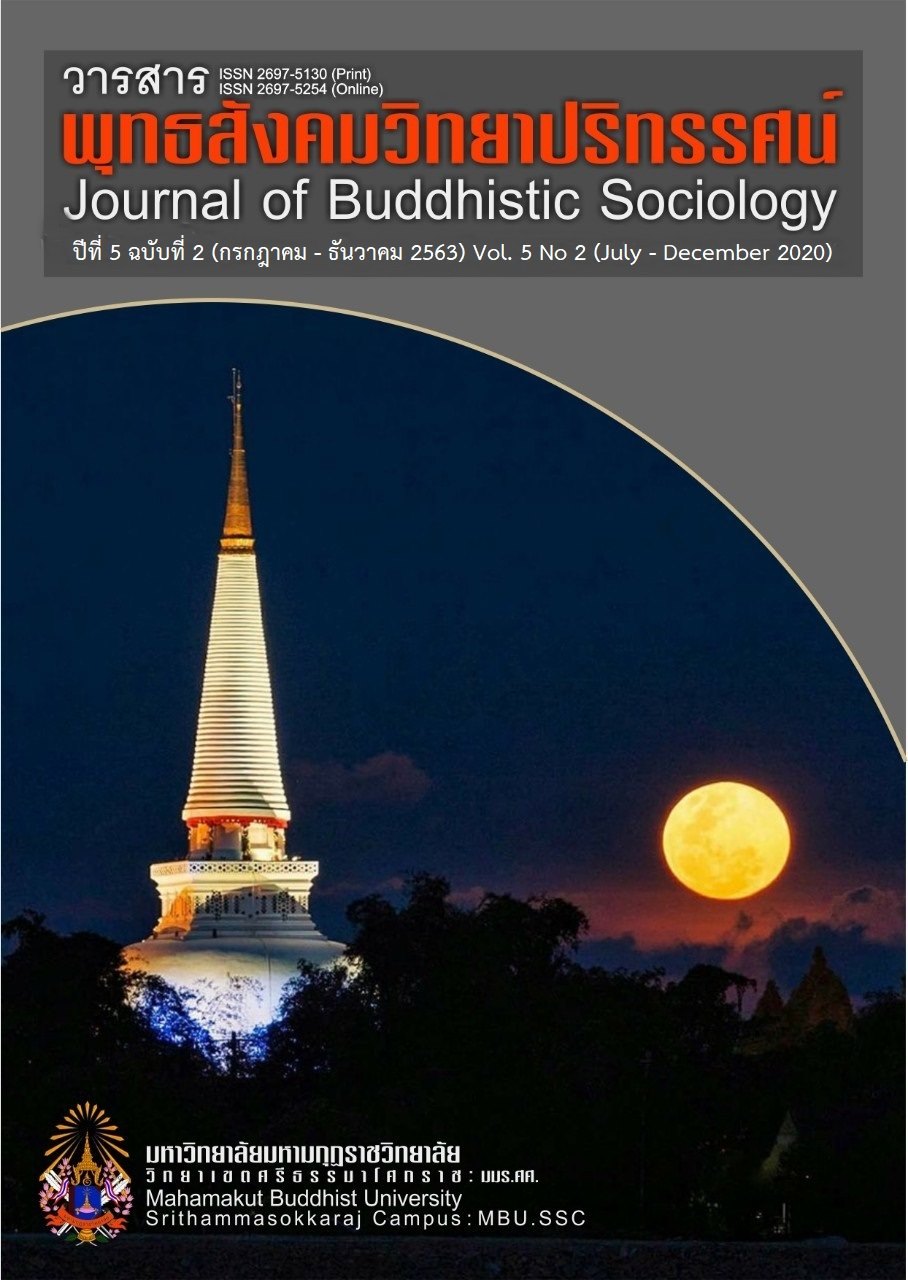THE NEW GENERATION AND CURRENT DEMOCRACY IN THAILAND
Main Article Content
Abstract
Democracy is a movement used to protect the rights and freedoms, leading to equality, brotherhood and freedom in some way. For democracy, an indispensable part is promoting the political participation of civil society in order to join hands in developing towards true demand, with a group of young people participating in national development. The new generation is very alert in the present. This is why it plays a huge role in driving in various sectors, thus creating a wave of alertness from the new generation nowadays.
The current political and democratic problems of Thailand went towards the path of political reform through the process that the government has imposed several measures or guidelines in order to promote Thai political development. The new generation of Thai people today have the desire to drive the country towards more democracy.
Therefore, the new generation hopes to see the country as a truly stable democracy. And for this reason, the new generation of Thai people today are those who have demonstrated that this generation is the one who will lead the nation towards stable, prosperous and sustainable democracy.
Article Details
References
กิตติทัศน์ ผกาทอง. (2563). คนรุ่นใหม่กับกิจกรรมทางการเมือง. เรียกใช้เมื่อ 23 ตุลาคม 2563 จาก https://www.matichon.co.th/columnists/news.
ทวี สุรฤทธิกุล. (2562). คนรุ่นใหม่กับประชาธิปไตยใหม่. เรียกใช้เมื่อ 12 ตุลาคม 2562 จาก https://www.posttoday.com/politic/columnist/603407.
ธนบัตร อารีสวัสดิ์. (2554). ประชาธิปไตย คำที่มีปัญหาต่อการปกครองของประเทศไทยในปัจจุบัน. เรียกใช้เมื่อ 12 กรกฎาคม 2554 จาก https://web.facebook.com/notes/.
บุญเชิด มารศรี. (2553). บทบาทกำนัน ผู้ใหญ่บ้าน ที่มีต่อการเสริมสร้างการมีส่วนร่วมทางการเมืองของ ประชาชน ศึกษากรณีอำเภอบึงสามัคคี จังหวัดกำแพงเพชร. ใน วิทยานิพนธ์รัฐศาสตรมหาบัณฑิต. มหาวิทยาลัยสุโขทัยธรรมาธิราช.
บุญธรรม เลิศสุขีเกษม. (2543). บทบาทของประชาชนต่อการส่งเสริมและพัฒนาประชาธิปไตย. เชียงใหม่: มหาวิทยาลัยเชียงใหม่.
ประเวศ วะสี. (2557). การพัฒนาประชาธิปไตยและการปฏิรูปทางการเมือง. กรุงเทพมหานคร: สำนักพิมพ์หมอชาวบ้าน.
ปิยบุตร แสงกนกกุล. (2561). ปักธงประชาธิปไตย. เรียกใช้เมื่อ 16 ธันวาคม 2561 จาก https://futureforwardparty.org/about-fwp/our-policies.
พสิษฐ์ ไชยวัฒน์ และสติธร ธนานิธิโชติ. (2561). คนรุ่นใหม่ประชาธิปไตยช่วงเปลี่ยนผ่าน. เรียกใช้เมื่อ 11 ตุลาคม 2561 จาก https://prachatai.com/journal.
ไพบูลย์ วัฒนศิริธรรม. (2544). แผนพัฒนาวัฒนธรรมประชาธิปไตย. กรุงเทพมหานคร: โรงพิมพ์คุรุสภาลาดพร้าว.
ภูสิทธ์ ขันติกุล. (2553). รายงานการวิจัยเรื่อง รูปแบบการมีส่วนร่วมทางการเมืองของประชาชน เขตดุสิต กรุงเทพมหานคร. มหาวิทยาลัยราชภัฏสวนสุนันทา.
อมร รักษาสัตย์. (2541). การศึกษากับการพัฒนาประชาธิปไตย. กรุงเทพมหานคร: สำนักงานคณะกรรมการการศึกษาแห่งชาติ.
______. (2543). หลักการปกครองในระบอบประชาธิปไตย. กรุงเทพมหานคร: การัตน์การพิมพ์.
Carlton, C. R. (1975). Introduction to political science. New York: McGraw-Hill.
Lindsay, A. D. (1951). The Essentialsof Democracy (2nd ed.). Oxfor United Kingdom: Oxford University Press.
Sartori, G. (1965). Democratic Theory. N.Y.: F.A. Pracger.


